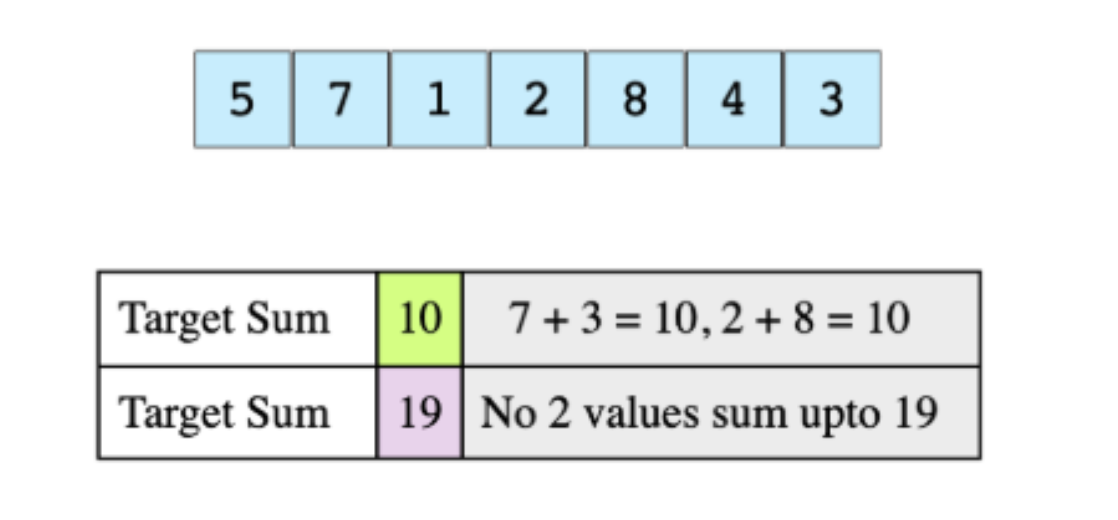Problem Statement#
Given an array of integers and a value, determine if there are any two integers in the array whose sum is equal to the given value. Return true if the sum exists and return false if it does not.
Consider this array and the target sums:
Solution#
Solution Explanation#
Runtime Complexity#
The runtime complexity of this solution is linear, O(n).
Memory Complexity#
The memory complexity of this solution is linear, O(n).
Solution Breakdown#
In this solution, you can use the following algorithm to find a pair that add up to the target (say val).
Scan the whole array once and store visited elements in a hash set.
During scan, for every element
ein the array, we check ifval-eis present in the hash set i.e.val-eis already visited.If
val-eis found in the hash set, it means there is a pair (e,val-e) in array whose sum is equal to the givenval.If we have exhausted all elements in the array and didn’t find any such pair, the function will return
false.
Practice problems like this and many more by checking out our Grokking the Coding Interview: Patterns for Coding Questions course!
